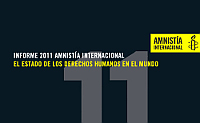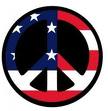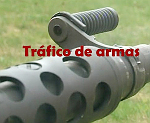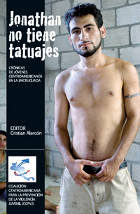Recommendations
More recommendations
-

Amnesty International Report 2011: The state of human rights in the world
http://www.amnesty.org/es/annual-report/2011
Amnesty International has published its annual report on the situation of human rights worldwide, the result of research in 157 countries and territories in 2010.
First, the report presents a general overview of the regional conclusions. This year, the key issues are: freedom of expression, international justice, accountability of companies, the death penalty, reproductive rights and the situation in the Middle East and North Africa. In the second part, a section is devoted to each country, with a description of the state of human rights in that particular place and particular noteworthy cases. Finally, it presents the situation of some international and regional treaties in various countries.
The title of the prologue, "Activists use new tools to challenge repression," clearly reflects the trend in the struggle for human rights over the last year. The new means available to citizens in general and activists in particular to confront human rights violations have been a milestone in the cause. WikiLeaks (and the revelations about human rights violations accepted or not punished by states), Internet social networking and the mobile telephone have been at the centre of unique moments in the struggle for human rights. They were present, for example, in the demands for freedom, dignity and justice in the Middle East and North Africa, and in the displays of support by anonymous Chinese Internet users for the winner of the Nobel Peace Prize, Liu Xiaobo.
However, the new technologies are only tools for channelling demands and are only still a possibility for real change. This real change should end the cases of human rights violations that Amnesty International has identified, like the restrictions on freedom of expression in at least 89 countries; the vulnerability of journalists and women around the world; the precarious situation of minorities, refugees and migrants; and the denial of the right to truth and justice in post-conflict areas.
M.A.T.
-

United States Peace Index
http://www.visionofhumanity.org/
The United States Peace Index (USPI), created by the Institute for Economics and Peace is an innovative tool that shows the level of peace in each of the 50 states of the USA, based on five key indicators: the number of homicides, the number of violent crimes, the number of police officers, the number of convicts, and the ease access to small arms and light weapons.
Although by definition these indicators provide a negative description of peace, i.e. one that is understood to mean the absence of violence, the index goes further, correlating the reduction in violence with other socio-economic variables, grouped in the following areas: education, health, the economy, politics and demography. It shows how the most favourable environments for peace are those where people have easier access to education, health services, and have more economic opportunities.
Moreover, despite the limitations regarding the data that measure the impact of peace on the economy, the USIP shows the positive impact it would have on the U.S. economy, if it achieves the same levels of peace as Canada.
H.A.
-

The violation of the embargo
2010–France – 52'
Directed by: Vanina Kanban
Producction: TV PresseArms dealers, senior figures in politics, the armed forces and secret services of France and Croatia, unsuspecting Croatian patriots, the involvement of third countries and some international bodies are interwoven in this French-produced documentary investigation. It looks at how the arms embargo imposed on the former Yugoslavia during the Serbo-Croatian war (1991-1995) by the United Nations Security Council in September 1991 was systematically violated in favour of the Croatian cause, with the consent and in some cases even the participation, presumably, of France, which had voted for the ban, and NATO, responsible for enforcing it in the Adriatic Sea.
The documentary shows states and international organisations often ignore their own official positions when they collide with the interests of realpolitik, which are the real mechanism behind the gears of power. This study therefore suggests that violations of United Nations arms embargoes are common, with the Croatian case an obvious example.
F.J.P.
-

Documentary: "Uranium Smuggling"
"Uranium Smuggling"
2009-France-52'
Directed by: Patrick Forestier
Producction: Tac Presse, Special Invesstigation i Canal +Katanga province, in the south of the Democratic Republic of the Congo, is known as the "geological scandal," due to the vast amount of minerals in its subsoil, including cobalt and copper, but above all uranium. The use and sale of the precious mineral, which is essential in generating nuclear power, is completely banned except with the appropriate permits and under the strict control of government.
This region is the beginning of the investigation that looks at the murky relationships based on the illegal uranium trade within the country and beyond its borders, in which in the Congo's political authorities, army and intelligence services are involved, as well as the International Atomic Energy Agency, which is complicit in this illegal trade by its silence.
With a slight twist in the line of investigation, we are shown the other side of the coin, and how one of the world's most important nuclear power companies, France's AREVA, signs a multimillion dollar contract in what is apparently an official and transparent process, for the operation of a uranium mine in Niger. In addition, this reveals the company's total immunity, as despite having been accused of failing to respect environmental regulations regarding air and water pollution, it continues to expand its business not only in the region but worldwide.
In short, the documentary draws our attention to the high levels of corruption that make uranium smuggling possible in the world, and calls into question the coercive power of international organisations to stop it; and it tries to offer some ideas, albeit insufficient ones, that reveal the opacity of this trade which unfortunately has very serious consequences for the planet.
H.A.
-

Documentary: "Arms Dealers"
"Arms Dealers"
2009–France-57'
Directed by: Stéphane Malterre
Production: Tac PresseThis thorough investigation of the cogs that move the great gearbox of the arms trade, takes as its starting point the Belgian arms company FN Herstal that sells its products in over 100 countries and employs more than 3,000 employees in branches distributed all over the world.
The documentary provides a clear and detailed look at the various levels and individuals involved in this market: from the expertise of senior seals staff selling their products at the "international defence exhibition" - where the latest ideas in arms are grotesquely displayed; to the implication and skill of European politicians in encouraging substantial purchases by demanding customers from the Middle East; to the manual dexterity of the veteran machine-gun fitter at the Herstal factory and the demonstration organised by the company's employees against the Belgian government to obtain authorisation for the sale of a shipment of weapons - worth 12 million euros - to the Libyan government of Colonel Gaddafi.
Finally, and without ignoring the dire consequences that this trade has on the civilian population, the film follows the footsteps of the world's biggest illegal arms dealer, Viktor Bout, known as the "merchant of death", highlighting the extraordinary profits generated by the black market, due to the arms embargoes on various countries around the world.
H.A.
-

Jonathan has no tattoos: stories of Central American youth at the crossroads
Jonathan no tiene tatuajes: crónicas de jóvenes centroamericanos en la encrucijada is a book studying the dynamics of gangs in the Northern Triangle (Guatemala, Honduras and El Salvador).
Six journalists covering a project by the Central American Coalition for the Prevention of Juvenile Violence (CCPVJ) provide a very clear, realistic and eloquent reflection, based around five stories, of the situation experienced by a broad sector of the population. The central theme of the book is the violence associated with young people related to gangs in Central America that has caused a great deal of victims.
These stories reconstruct the lives of some young people and their families, in which difficulties and tragedy predominate. Jonathan has no tattoos… is an in-depth journalistic study of the areas where these youths live, featuring some images and eyewitness accounts. Many of their stories highlight their resignation to an early death, excessive violence and desperation.
The text leads the reader to reflect on their living conditions and how violence leads to more violence, and the sometimes crucial influence of a lack of opportunities, inequality, marginalisation, family disintegration, and a lack of education, which are all factors in underdevelopment and a reflection of governments with poorly consolidated institutions and very fragile democracies in Central America.
V.H.R.O.